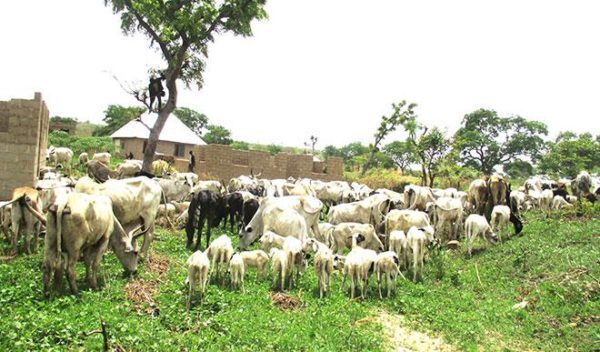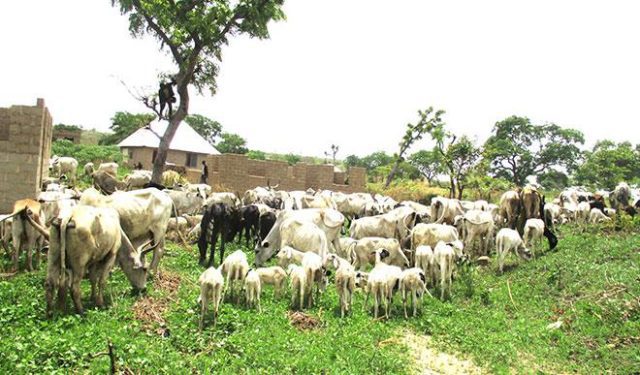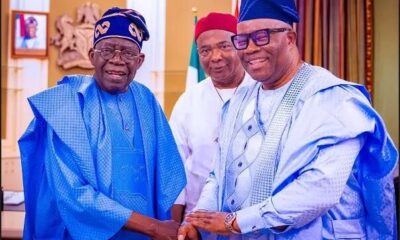National Issues
Nomadic Herdsmen and the ‘Freedom’ of Movement in Nigeria -By Dele Awogbeoba


On Tuesday, the Daily Trust published an editorial criticising the Ekiti State governor for (a) “banning” cattle rearing in the State, (b) visiting the sins of a few miscreants on an entire ethnic group, (c) inciting murder and (d) infringing on the constitutionally protected rights to free movement and the freedom to conduct of business.
The editorial seemed to me to be anchored on emotion and a misunderstanding of the law as it is now, and the law as it would be should the proposed Fayose bill become law in Ekiti State. First, Fayose is not proposing to “ban” cattle rearing in Ekiti State. He is regulating the practice. Should the proposal become law, cattle rearing will have to be done within ranches to be lawfully pursued business ventures within Ekiti State. What will be banned will be the unrestricted movement of cattle within the state outside of the designated ranches. The effect of this will be that it allows the police and soldiers to arrest and apprehend breaches to cattle movement within the state BEFORE any clashes between farmers and herdsmen have in fact occurred, as opposed to waiting for the police to be notified after the fact once whole villages have been killed as reprisal for attacks on straying cows onto farmlands.
The editorial further posited that the regulation of cattle rearing infringed the rights of free movement and the right to freedom to pursue the economic activities of the herdsmen. This restriction, it posits, amounts to allowing a precedent for attacking group interests on account of the acts of some members of a group. The Daily Trust seems to have a knowledge deficit of the Nigerian constitution. The constitution allows the free movement of Nigerians with certain stipulated exceptions but does not give any freedom of movement rights to animals or cattle owned by Nigerians. Secondly, whilst each Nigerian has the right to pursue lawful economic activity, the state government has the right and power to regulate economic activity within its state in the interests of the people of that state as a whole. By now, everyone is aware of the atrocities and killings embarked upon countrywide by the activities of the herdsmen. It is a reasonable act to pre-empt such an occurrence if one can do so through the law. Cattle restricted to ranches purchased or leased is unlikely to stray into the land owned by farmers. The source of the conflict is being prevented by this new law.
Cattle rearing business, as to be practiced in Ekiti State, will have to be done within and in accordance with the regulations set by the law-making authorities of Ekiti State. The beauty of the federal structure is that if businesses find laws within a given state inimical to it, they can vote with their feet and take their huge potential tax nairas to another more hospitable state. The loss of IGR (if indeed the herdsmen pay any form of business tax) would be Ekiti’s loss and the gain of some other state that keeps the law as it currently is.
The editorial’s strongest position was on the issue of Fayose’s direction to hunters in Ekiti State. That was clearly not a statesman like action to take nor is it clear that the hunters are aware of the precise legal position under which the taking of life is lawful in Nigeria. Fayose’s language was couched and anchored on self-defense. Taking the life of a person is lawful if one reasonably believes that they are at serious risk of imminent death or serious injury from the person killed. This is a principle of law common in almost all countries of the world. This principle acknowledges the basic human instinct for self-survival. Fayose said “if anyone comes to take your life, you must take them out.” How that is interpreted in real life will determine the actions of the hunters and that in turn will be decided upon by the court on a case-by-case basis. It is however a stretch for the Daily Trust to equate the statement to incitement to murder.
The Daily Trust placed scant regard on the fact that the herdsmen have been called the world’s forth largest lethal terrorist outfit on account of the killings attributed to them. The media house appeared to place more emphasis on disarming the Ekiti hunters (who are yet to kill anyone) than on the need to disarm the herdsmen whose murder rate within Nigeria closely competes with those of Boko Haram.
One is seriously confused about who can best be described as the most reckless in this case, the Daily Trust Editorial Board or the directions of Governor Fayose to hunters in Ekiti State?
dele.Awogbeoba@gmail.com


















